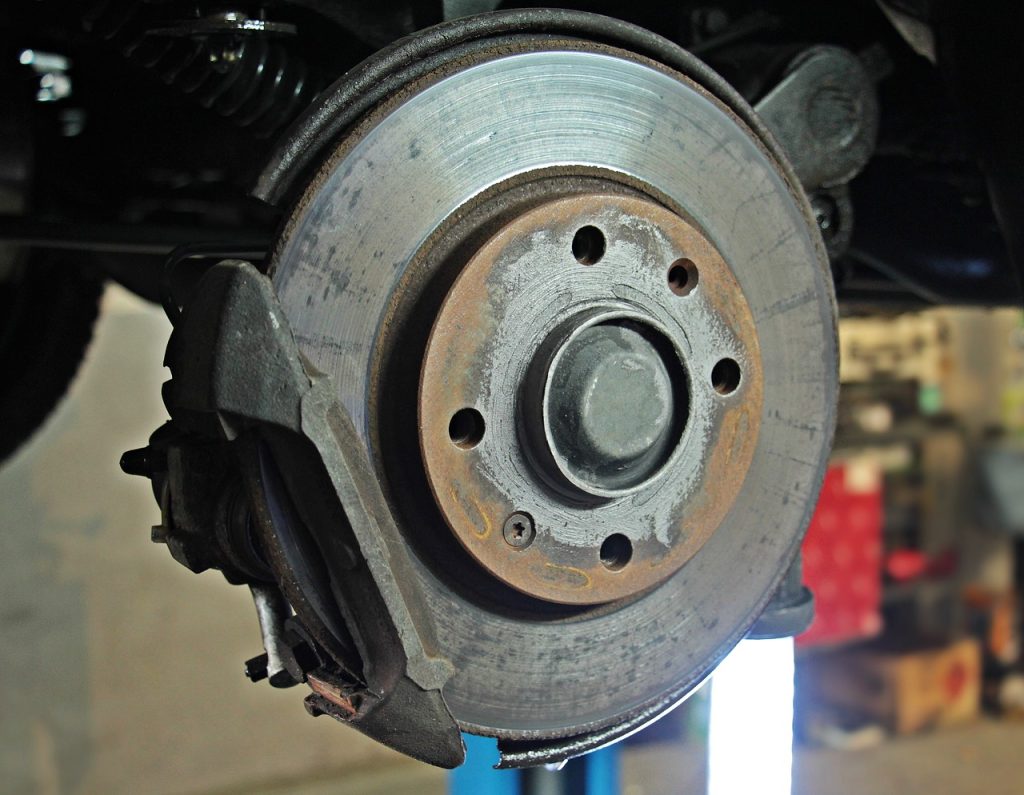Each year, bad brakes account for 22% of all vehicle collisions that are caused by faulty car parts. In most of these cases, more careful brake maintenance might have helped the driver avoid the collision and get home safely. With this in mind, if you ever notice the following signs of brake issues, don’t hesitate to visit your local Ford dealer for brake repair.

Squealing or Screeching
Any high-pitched squealing or screeching sounds coming from your brakes will usually mean that one of your brake pads is worn out. This sound is generated by design and isn’t usually any cause for alarm.
Modern brake pads are designed with a tiny metal tab inside the friction layer. As this friction layer is steadily worn away, eventually, the metal tab becomes exposed, which causes the squealing noise. They say the squeaky wheel gets the grease; likewise, when it comes to your car, the squealing pad should always get replaced without delay.
Metallic Grinding Sounds
If you fail to replace a brake pad in time, you might hear a heavy grinding sound of metal scraping directly on metal. This grinding noise often indicates a rather more serious problem. Here, a brake pad might have lost its friction layer altogether. This means the pad’s metal casing is scraping directly against the rotor disc, which can rapidly damage the rotor.
Vibrating Pedal or Steering Wheel
Rotor discs can sometimes become damaged by a brake pad or warped out of shape by overheating. When a rotor is scored or warped in some way, you’re likely to feel rhythmic vibrations through the brake pedal when you use it. You might even feel these vibrations through the steering wheel. It’s best to have a damaged rotor resurfaced or replaced right away.
Leaking Brake Fluid
If you ever notice a yellow or brown fluid puddling under your car, you might have a brake fluid leak. As brake fluid maintains essential hydraulic pressure inside the brake lines, it’s dangerous to drive with such a leak. While on the road, leaking brake fluid will sometimes cause the brake pedal to feel spongy underfoot; it might also reduce your vehicle’s stopping power.
Longer Braking Distances
Any reduction in the ability of your brakes to stop your car is a serious problem. Longer brake distances might be caused by leaking fluid. The problem might also result from overheating brakes, which can sometimes occur when brakes are used continuously for extended periods, such as when in heavy stop-and-go traffic. Needless to say, it’s wise not to drive with weakened brakes until the underlying issue has been identified and resolved.
Have your brakes inspected and repaired today by qualified technicians at Whites Ford. Our long-standing full-service dealership provides a broad inventory of new and used vehicles, highly competitive deals, and personalized, courteous customer service.




